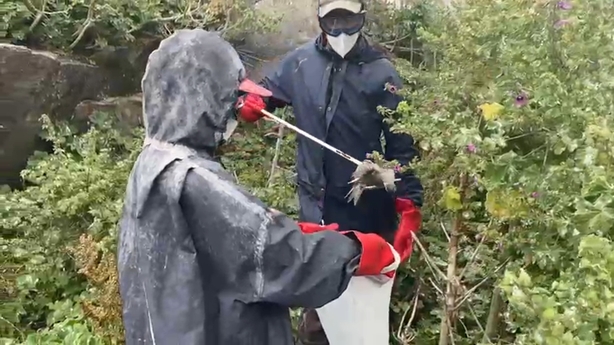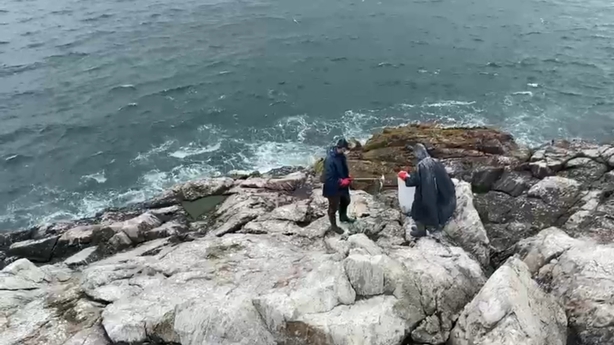Wardens looking after one of Europe's most important seabird colonies off the coast of north Co Dublin have described the 'harrowing' challenges of dealing with a developing bird flu outbreak.
Carcasses from Rockabill sent to the Department of Agriculture, Food and the Marine for analysis tested positive for bird flu also known as H5N1 and avian influenza.
Three wardens took up their positions earlier this year living in the old lighthouse dwellings on the island.
They monitor and protect Europe's largest colony of Roseate Terns, among the continent's rarest breeding seabirds, but now their efforts include trying to prevent further spread of the highly contagious viral disease.
"In the past 12 days, our role here has switched from monitoring and ringing chicks to picking up dead bodies every day," Conor Crowley explained.
"So, every morning we do a sweep of the island in full PPE collecting carcasses for disposal later and every evening is the same.
"It's been pretty gruesome, pretty harrowing. The first 60 days were gorgeous. Seeing the chicks hatch after the birds first came to monitoring them every day and seeing them grow.
"And now, we are just picking up all those bodies that we had been caring for the whole summer."

Rockabill is Europe's largest and most important breeding colony for Roseate Terns holding 1,750 pairs.
BirdWatch Ireland said an outbreak of bird flu in this colony would have "disastrous" repercussions at an international level.
"It's particularly scary for the Roseate Terns due to how fragile their population is," Mr Crowley explained.
"Rockabill is the most important colony in Europe for the Roseate Tern and any impact here, could have huge impacts around the world for them."
Meanwhile, the HSE is reminding people not to handle or touch sick or dead wild birds to protect themselves from bird flu.

The Director of the HSE Health Protection Service, Dr Eamonn O'Moore, said: "Although it is very unusual for people to catch bird flu, it can happen.
"We are advising people not to pick up or touch dead or sick wild birds, and to keep their pets away from them.
"Bird flu is a type of influenza that affects birds and while it is rare that humans can become infected, it can cause serious disease. Bird flu is not human to human transmissible.
"People should also avoid contact with surfaces contaminated with bird faeces and should not handle bird feathers they find in the wild."
Anyone who comes across dead or sick wild birds is asked to notify the Department of Agriculture, Food and the Marine via the Avian Check App or call the Avian Influenza Helpline Number (076) 1064403 or 1850 2000456.
Additional reporting from Philip Bromwell






